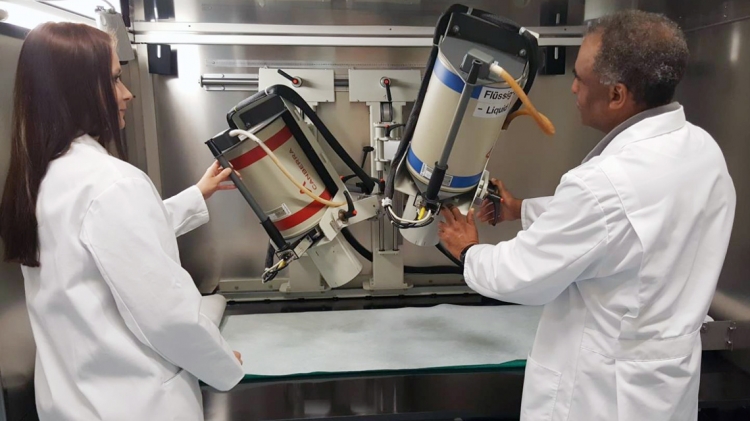The IAEA’s laboratory which provides services to many countries in occupational radiation monitoring has recently earned ISO re-accreditation, testifying that it meets the highest quality and procedural standards.
The IAEA Testing Laboratory, as it is officially known, advises laboratories in many countries, especially developing Member States, to monitor the radiation doses received by workers exposed to radiation and ensure that their exposure levels stay below legal thresholds.
The ISO/IEC 17025 re-accreditation was issued in June 2017 as a formal recognition by an independent international body and is valid for five years. It certifies the laboratory’s managerial and technical competence, and serves as a global benchmark for clients, Member States and accreditation bodies around the world. The accreditation demonstrates the competence of staff, the thoroughness of methods and, most importantly, the accuracy of results, said Miroslav Pinak, Head of the IAEA’s Radiation Safety and Monitoring Section, and technical manager of the laboratory.
“The accreditation is an important milestone,” Pinak said. “It demonstrates to our clients in Member States that we practice what we preach: state of the art quality and management practices.”
Supporting laboratories in Member States
For more than 50 years, the IAEA has served as a model for the radiation safety programmes of its Member States.
In the last decade, experts from countries including Azerbaijan, Brazil, Chile, Malaysia, Mongolia, Pakistan and Spain were trained in the laboratory on accredited methods to assess radiation doses and quality management systems. Such training events help local experts gain important skills needed to set up their own services and laboratories.
In addition, laboratory staff supports education and training activities such as annual IAEA-co-organized International School on Nuclear Security International Centre for Theoretical Physics in Trieste, Italy.




